Do you crave the thrill of outdoor escapades, but fret about their potential toll on nature’s delicate equilibrium? I truly understand that dilemma. It was during my personal quest for sustainable outdoor habits when I chanced upon something amazing: The Leave No Trace principles.
Allow me to be your guide into these seven invaluable principles and explain why they’re so essential in keeping our natural habitats untouched for the generations yet to come. So, ready to navigate these rules with me? Let’s make sure we can relish our hiking, camping or even simple picnicking adventures without leaving a mark!
Key Takeaways
- Leave No Trace principles are guidelines for responsible outdoor recreation that help minimize our impact on nature and preserve natural spaces for future generations.
- The seven principles include planning ahead, using durable surfaces, properly disposing of waste, minimizing campfire impacts, leaving natural objects undisturbed, respecting wildlife, and being considerate of other visitors.
- These principles are important because they protect ecosystems, preserve natural spaces, and ensure that future generations can enjoy the outdoors.
- Practical tips for practicing Leave No Trace include planning trips in advance, staying on designated paths and campsites, disposing of waste properly, minimizing campfire impacts by using existing fire rings or gravel surfaces when possible. Additionally it is important to leave cultural or historic structures undisturbed and to respect wildlife by observing from a distance. Being considerate of other visitors is also essential.
What are the Leave No Trace Seven Principles?
The Leave No Trace Seven Principles are guidelines for responsible outdoor recreation that include planning ahead, using durable surfaces, properly disposing of waste, minimizing campfire impacts, leaving natural objects undisturbed, respecting wildlife and being considerate of other visitors.
Plan Ahead and Prepare
Getting ready before a trip is key. It’s the first rule of Leave No Trace Seven Principles. I look at outdoor preparation and map my trips ahead of time. Knowing where I’m going helps avoid risks and hazards.
Learning the rules of an area is important too. Some places have special concerns or regulations to follow, like certain times to visit or paths to take.
Checking for weather conditions keeps me safe from storms and heavy rainfalls. Packing light but ready for all weathers makes my outdoor adventure enjoyable and carefree.
The goal? An amazing time outdoors that also cares for our earth! Following this principle shows how simple actions can lead toward sustainable outdoor practices. The result is not just a great day out, but knowing you’re helping preserve Mother Nature too!
Travel and Camp on Durable Surfaces
Camping and hiking are great fun. But we need to think about where we step. Durable surfaces like trails, rocks, or dry grass help nature stay healthy. These areas can take a lot of feet without harm! Staying on the trail keeps plants safe too.
It also makes sure animals have their space.
Before you go out, plan your trip well. Pick routes and camps that won’t hurt nature much. Where you camp should be able to handle human touch well without harm coming to it. It is also very important that we clean up our mess when camping or hiking, leaving nothing behind but footprints! This way, we honor the Leave No Trace Seven Principles and keep our activities from hurting nature.
Dispose of Waste Properly
Taking out your trash is key. Litter harms the woods and wildlife. Plus, it’s just plain ugly! We must always bring a bag for our garbage when we hike or camp. This makes sure that there is no trace of us left behind.
Your trash goes home with you—be it snack wrappers, used tissues, or empty bottles. It keeps nature clean and safe for animals and other hikers too. After all, who wants to see old trash on a lovely walk in the wild? So let’s aim for zero littering on our trips outdoors!
Minimize Campfire Impacts
Campfires can have a lasting impact on the environment if not managed properly. That’s why it’s important to minimize campfire impacts when enjoying the outdoors. One way to do this is by traveling and camping on durable surfaces, like gravel or established campsites.
When building a fire, it’s best to use an existing fire ring if one is available. This helps minimize damage to the surrounding area and prevents scarring of the land. Following approved guidelines for campfires also helps reduce negative effects on the environment, ensuring that natural resources are preserved for future generations.
By being mindful of our campfire practices, we can enjoy the warmth and beauty of a fire while minimizing our impact on nature.
Leave What You Find
Preserving the natural and cultural treasures of our outdoor spaces is important, especially when it comes to Leave What You Find. This principle reminds us not to touch or disturb cultural or historic structures and artifacts.
Instead, we can admire them by examining and photographing them. By following this principle, we ensure that future generations can also appreciate and enjoy these valuable pieces of history.
As a hiking enthusiast, understanding and practicing Leave What You Find is crucial in showing respect for the outdoors and everything it has to offer.
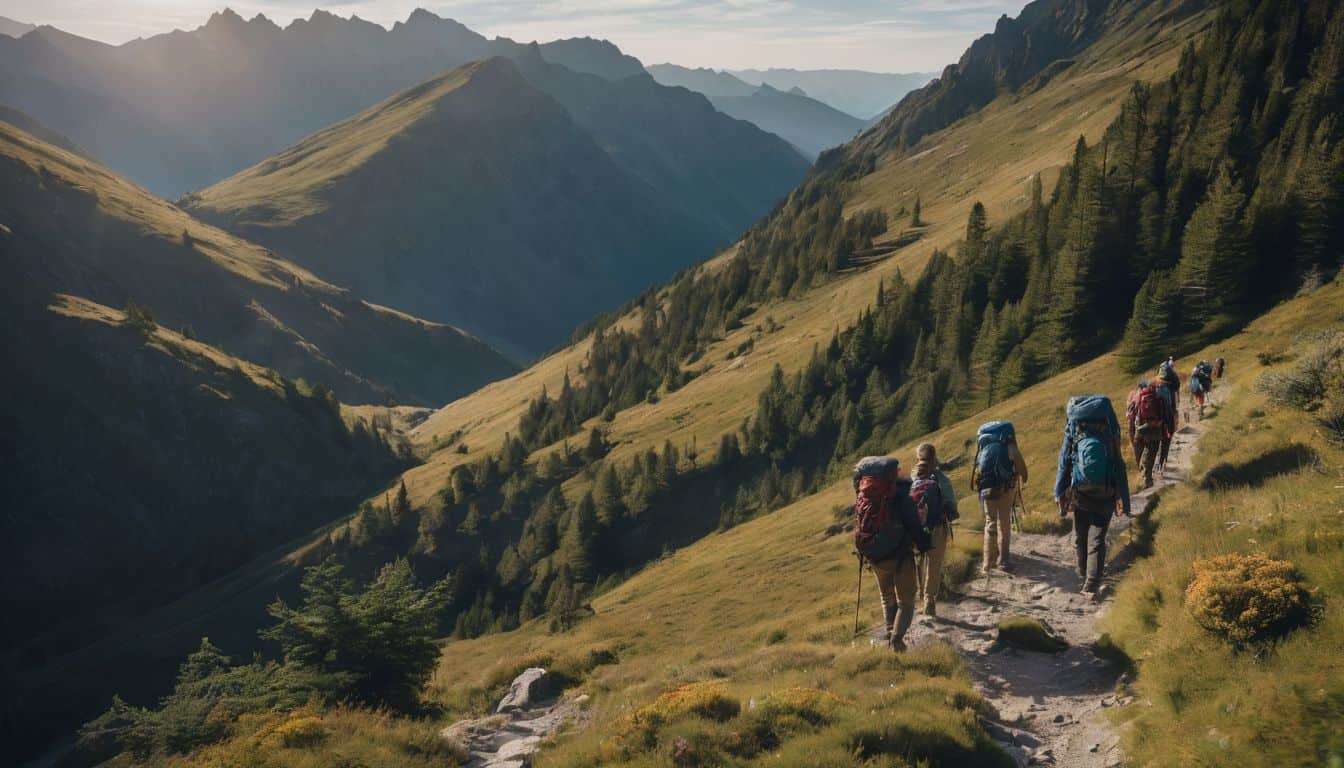
Respect Wildlife
Respecting wildlife is an important part of practicing Leave No Trace principles. When hiking or camping, it’s crucial to observe animals from a distance and not approach or follow them.
This helps to ensure their safety and preserves their natural behavior. Feeding animals should also be avoided as it can disrupt their diet and lead to dependency on human food. It’s important to keep pets under control in outdoor areas to prevent them from disturbing or harming wildlife.
By respecting wildlife, we can help maintain the balance of nature and protect these beautiful creatures for future generations.
Be Considerate of Other Visitors
Being considerate of others is an important principle in outdoor etiquette. It means being respectful and mindful of other visitors’ presence, needs, and enjoyment of the natural environment.
When hiking or camping, it’s crucial to be courteous and yield to other users on the trail or at campsites. By sharing the space and practicing good outdoor manners, we can ensure that everyone has a positive experience in nature.
Being considerate of others not only fosters a sense of community but also helps protect the quality of their outdoor adventures. Let’s remember to be mindful, practice courtesy, and show consideration for our fellow hikers and campers as we explore and enjoy the beauty of our natural spaces together.
Who Should Use the Leave No Trace Seven Principles?
The Leave No Trace Seven Principles are important for everyone who visits outdoor spaces. Whether you are a hiker, camper, or nature lover, these principles should be followed to protect and preserve the environment.
It doesn’t matter if you’re experienced or new to outdoor activities – anyone can make a positive impact by practicing Leave No Trace. These principles ensure that we leave outdoor spaces clean, pristine, and wild for future generations to enjoy.
So whenever you venture into nature, remember to follow the Leave No Trace Seven Principles!
Comprehensive Guide on the Importance of Leave No Trace Principles
As a hiking enthusiast, it’s important to understand the significance of Leave No Trace principles for responsible outdoor recreation. These principles are a set of guidelines that help us minimize our impact on natural spaces and preserve them for future generations.
One key principle is planning ahead and preparing. This means researching the area you’ll be visiting, knowing the rules and regulations, and packing all necessary supplies. By doing this, we can reduce the chances of getting lost or needing assistance, ensuring a safer experience.
Another essential principle is disposing of waste properly. It’s crucial to pack out all trash and litter, leaving no trace behind. This not only keeps the environment clean but also protects wildlife from ingesting harmful substances.
Respecting wildlife is another important aspect of Leave No Trace. We should observe animals from a distance without disturbing them or feeding them. This allows them to behave naturally while maintaining their own habitat.
Overall, following these principles helps us protect ecosystems, preserve natural spaces for future generations to enjoy, and practice sustainable outdoor recreation. So let’s strive to be responsible outdoor enthusiasts by embracing Leave No Trace principles in every adventure we embark upon!
Why are the Leave No Trace Seven Principles Important?
The Leave No Trace Seven Principles are important because they preserve natural spaces, protect wildlife and ecosystems, and ensure future generations can enjoy the outdoors.
Preserving natural spaces
Preserving natural spaces is crucial for the health of our environment and the enjoyment of future generations. The Leave No Trace Seven Principles play a vital role in achieving this goal.
By following these principles, we can minimize our impact on delicate ecosystems, protect biodiversity, and ensure that outdoor spaces remain beautiful and pristine. It’s important to remember that even small actions, like staying on designated paths and campsites or avoiding disturbing wildlife, can make a big difference in preserving natural spaces for years to come.
Let’s commit to being responsible stewards of the outdoors and prioritize the preservation of our planet’s natural beauty.
Protecting wildlife and ecosystems
Preserving wildlife and ecosystems is a crucial part of practicing the Leave No Trace principles. When we respect wildlife boundaries and observe them from a distance, we ensure their safety and well-being.
Additionally, avoiding feeding animals helps maintain their natural behavior and prevents dependency on human food sources. Storing our rations securely also protects wildlife by preventing access to harmful human food.
Controlling pets or leaving them at home minimizes disturbance to wildlife and their habitats. By avoiding sensitive wildlife areas, we can preserve their natural habitats and reduce our impact on their populations.
Ensuring future generations can enjoy the outdoors
As a hiking enthusiast, it’s important for me to ensure that future generations can also enjoy the outdoors. The Leave No Trace Seven Principles play a crucial role in making this possible.
By following these principles, we can minimize our impact on the environment and preserve natural spaces for years to come. This means respecting wildlife, disposing of waste properly, and staying on designated paths and campsites.
It’s all about being mindful of how our actions can affect the ecosystems and wildlife around us. By practicing Leave No Trace principles, I am doing my part in protecting the outdoors and ensuring that future generations can experience its beauty just like I do now.
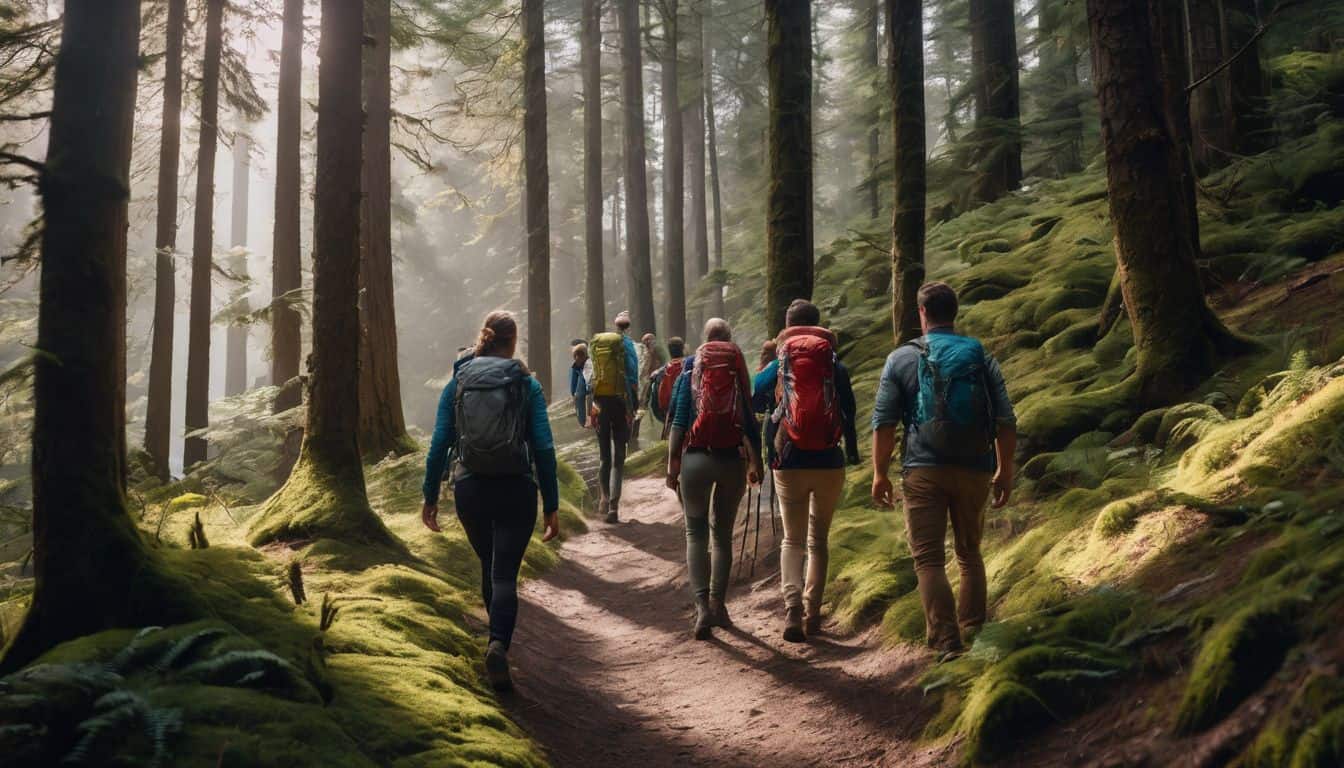
Tips for Practicing Leave No Trace Principles
Here are some practical tips to help you master Leave No Trace principles and become a responsible outdoor steward. From planning your trips in advance to avoiding disturbing wildlife, these tips will ensure you have a minimal impact on the environment and leave it pristine for future generations.
Read more to learn how you can make a difference with your outdoor adventures.
Plan your trips in advance
Planning your trips in advance is crucial when it comes to practicing Leave No Trace principles. By preparing ahead of time, you’ll have a better understanding of local regulations and any special considerations for the area you’ll be visiting.
This helps ensure that your outdoor activities have minimal environmental impact while still allowing you to achieve your trip goals. Planning ahead also allows you to take necessary safety precautions and increases your self-assurance during the journey.
So remember, take the time to plan before heading out on your hiking adventures!
Stay on designated paths and campsites
Staying on designated paths and campsites is really important when we’re hiking or camping. It helps us to minimize our impact on the environment. By following these designated routes and camping areas, we can prevent the creation of new trails and campsites, which can damage fragile ecosystems.
Keeping our campsites small also helps to preserve vegetation and wildlife. When we disperse our camping activities in pristine areas, it prevents concentrated impacts that can harm the environment.
And by camping at least 200 feet away from water sources, like rivers and lakes, we protect these riparian areas from damage too. So let’s practice Leave No Trace principles by staying on designated paths and campsites to help minimize our environmental impact while enjoying the great outdoors.
Pack out all waste
One important tip for practicing Leave No Trace principles is to pack out all waste. This means that when you’re camping or hiking, it’s crucial to take all of your trash with you and not leave anything behind.
Before leaving your campsite or rest area, make sure to thoroughly inspect it for any trash or spilled food and dispose of them properly. If there are no toilet facilities available, solid human waste should be deposited in catholes.
By packing out all waste, we can help preserve the environment, keep the outdoors clean, and maintain cleanliness in nature. It’s an essential step towards responsible camping and hiking, ensuring that we leave no trace behind us.
The U.S. Fish & Wildlife Service emphasizes this principle in their Leave No Trace guidelines as a way to protect wildlife and ecosystems from negative impacts caused by improper waste disposal practices.
Avoid disturbing wildlife
When exploring the great outdoors, it’s important to be mindful of wildlife and their habitats. Disturbing wildlife can have harmful effects on both the animals and their ecosystems.
That’s why one of the Leave No Trace principles emphasizes avoiding disruptions to wildlife. Observing animals from a distance is recommended, as getting too close or following them can cause stress and disrupt their natural behaviors.
It’s also crucial to refrain from touching wildlife, as this can harm both the animals and ourselves. So remember, by respecting and keeping our distance from wildlife, we can help protect these beautiful creatures for generations to come.
Be mindful of other visitors
When exploring the outdoors, it’s important to be considerate of other visitors. This means being aware of their presence and practicing good trail etiquette. Always yield to others on the trails and give them space to pass.
Keep your voices low and avoid making loud noises that could disturb their experience. It’s also respectful to refrain from using cell phones or audio devices, as they can disrupt the peaceful environment for everyone.
Remember, the Leave No Trace principles are based on showing respect and consideration towards fellow outdoor enthusiasts. Let’s make sure we all have a positive and enjoyable time in nature together!
Going Beyond Leave No Trace Principles
Take your outdoor stewardship to the next level by participating in conservation efforts, educating others about Leave No Trace, and engaging in sustainable outdoor practices. Discover how you can make a lasting impact on our natural spaces and inspire others to do the same.
Read more here: [link].
Participating in conservation efforts
Conservation efforts play a vital role in protecting our natural spaces and ensuring their longevity. As outdoor enthusiasts, we have the power to make a positive impact by going beyond the Leave No Trace principles.
By participating in conservation efforts, we can actively contribute to preserving biodiversity, promoting sustainability, and being responsible stewards of the environment. Whether it’s volunteering for trail maintenance projects, joining clean-up initiatives, or supporting local environmental organizations, every action counts towards creating a more ecologically responsible world.
Let’s take pride in being guardians of nature and inspire others to do the same through our actions and advocacy. Together, we can make a difference and ensure that future generations can enjoy the beauty of the outdoors just as much as we do today.
Educating others about Leave No Trace
I believe that educating others about Leave No Trace is crucial in preserving our natural spaces. By spreading awareness and knowledge about the principles, we can help protect wildlife, ecosystems, and ensure that future generations can also enjoy the outdoors.
It’s important to teach people how to plan ahead and prepare for their trips, stay on designated paths and campsites, pack out all waste, avoid disturbing wildlife, and be mindful of other visitors.
With this knowledge, we can all become stewards of the environment and practice sustainable outdoor recreation. Let’s work together to protect our wilderness areas for years to come!
Engaging in sustainable outdoor practices
I believe in engaging in sustainable outdoor practices because it is important to minimize our impact on the environment. By being mindful of how we interact with nature, we can help protect and preserve outdoor spaces for future generations.
This means taking proactive steps to reduce our ecological footprint and commit to environmental stewardship. When we go beyond the Leave No Trace principles, we contribute to the conservation of natural resources and ensure long-term sustainability efforts.
As hiking enthusiasts, it is our responsibility to practice sustainable outdoor behavior and show a commitment to protecting the environment while enjoying the beauty of nature.
Resources for Learning More About Leave No Trace
For those looking to delve deeper into Leave No Trace principles and educate themselves further, there are numerous resources available. This includes Leave No Trace programs and materials that provide in-depth knowledge on responsible outdoor practices.
Additionally, environmental organizations and initiatives offer a wealth of information to promote conservation awareness and sustainable hiking/camping techniques.
Leave No Trace programs and materials
Leave No Trace programs and materials are essential resources for hikers and campers who want to practice responsible outdoor ethics. These programs aim to educate individuals about the Seven Principles of Leave No Trace, which emphasize the importance of planning ahead, minimizing impacts on nature, and respecting wildlife and other visitors.
By participating in these programs and utilizing the available materials, such as guides and educational resources, hikers can develop a greater understanding of ecological mindfulness and sustainable recreation.
Ultimately, Leave No Trace programs help ensure that future generations can continue to enjoy our natural spaces while preserving wildlife habitats and maintaining the beauty of our outdoor environments.
Environmental organizations and initiatives
Environmental organizations and initiatives play a crucial role in promoting the importance of Leave No Trace principles. These organizations are dedicated to environmental conservation, sustainable practices, and outdoor ethics.
They focus on natural resource management, environmental stewardship, and educating outdoor enthusiasts about minimum impact principles. Through their efforts, these organizations aim to preserve the beauty of our natural spaces, protect wildlife and ecosystems, and ensure that future generations can continue to enjoy the outdoors.
They collaborate with the Leave No Trace Center for Outdoor Ethics, as well as other conservation organizations and initiatives, to promote sustainable tourism and encourage responsible outdoor behavior.
Conclusion on Importance Of Leave No Trace Principles
In conclusion, mastering the Leave No Trace principles is essential for responsible outdoor recreation. By following these tips, we can protect and preserve our natural spaces, ensure the well-being of wildlife and ecosystems, and guarantee that future generations can enjoy the outdoors too.
Let’s all make a commitment to practice these principles and be mindful stewards of our environment.
Related Articles:
Is Van Life Sustainable? How To Be More Eco-Friendly on the Road. Dog First Aid for Hiking: Expert Tips from a Veterinarian. How to Avoid Ticks While Hiking. Beginner Kayaking Tips for First-Time Paddlers.
5 Tips for Hiking in the Rain: How to Stay Dry & Comfortable. How to Introduce your Partner to Camping for the First Time.
Is Van Life Sustainable? How To Be More Eco-Friendly on the Road
Living and traveling in a van, known as van life, has become popular among outdoor enthusiasts. But is it sustainable? Many people are concerned about the environmental impact of this lifestyle.
The good news is that van life can be more eco-friendly with some simple steps. By incorporating sustainable practices into your everyday routine on the road, you can minimize your carbon footprint and make a positive impact on the environment.
Some tips for being more eco-friendly while living in a van include using renewable energy sources like solar power, practicing minimalism to reduce waste and consumption, supporting local economies by buying locally sourced products, conserving resources such as water and electricity, and responsibly disposing of waste.
Dog First Aid for Hiking: Expert Tips from a Veterinarian
As a hiking enthusiast, it’s important to be prepared for any situation, including taking care of your furry friend. That’s why I’ve gathered some expert tips from a veterinarian on dog first aid for hiking.
It’s crucial to recognize symptoms of injuries like cuts or sprains and know how to treat them properly while out on the trails. Creating a hiking first aid kit specifically for your dog is also essential in case of any emergencies.
By following these tips, you can ensure the safety and well-being of your beloved pet while enjoying outdoor activities together.
How to Avoid Ticks While Hiking
Ticks can be a nuisance and carry diseases, but there are steps you can take to avoid them while hiking. When heading out on the trails, it’s important to wear long sleeves, long pants, and closed-toe shoes to protect your skin.
Using insect repellent with at least 20% DEET or a natural alternative can also help deter ticks. Don’t forget to tuck your pants into your socks and shirts into your pants to create a barrier against ticks.
After your hike, make sure to check your body and clothing for ticks and promptly remove any you find. This reduces the risk of disease transmission. So remember, dress appropriately, use repellent, create barriers, and check yourself afterwards to stay tick-free while enjoying the great outdoors!
Beginner Kayaking Tips for First-Time Paddlers
If you’re new to kayaking, here are some tips to get you started. First, make sure you have the right gear and clothing, including a waterproof jacket and pants. It’s also important to choose the right kayak for your needs and skill level.
When getting into the kayak, take it slow and steady to maintain balance. As you start paddling, remember to use proper technique and pace yourself. Finally, always plan ahead and be prepared for emergencies by carrying necessary safety equipment like a life vest and whistle.
Kayaking can be a fun adventure, so enjoy exploring the waterways while staying safe!
5 Tips for Hiking in the Rain: How to Stay Dry & Comfortable
Hiking in the rain can be challenging, but with these tips, you can stay dry and comfortable. First, make sure to wear waterproof clothing and footwear to keep yourself dry. Second, bring a waterproof backpack or cover to protect your gear from getting soaked.
Third, use a waterproof map or GPS device so you don’t get lost in the rain. Fourth, take breaks under sheltered areas like trees or rock overhangs to stay out of the rain for a bit.
Finally, remember to pack extra clothes and socks in case you do get wet. By following these tips, you can have a successful and enjoyable hike even in rainy conditions!
How to Introduce your Partner to Camping for the First Time
Introducing your partner to camping for the first time can be an exciting adventure. To make it a memorable and enjoyable experience, it’s important to plan ahead and prepare. Start by choosing a suitable camping location that provides basic amenities and is not too far from civilization.
Ease your partner into the camping experience by starting with a shorter trip or even just a day hike. Make sure to pack all the necessary gear, including tents, sleeping bags, cooking equipment, and sufficient food and water.
When you arrive at the campsite, take some time to set up camp together. Show your partner how to pitch a tent and build a fire safely if allowed in that area. Explain the importance of leaving no trace behind by disposing of waste properly and respecting wildlife.
Remember to keep food stored securely to prevent attracting animals.
During the trip, encourage your partner to engage in activities they enjoy outdoors such as hiking or fishing. Be patient and understanding if they are apprehensive or uncomfortable at times – remember that this may be their first time experiencing nature up close.
Shop The 7 Principles Materials
Looking for resources to help you practice the Leave No Trace principles? Check out these materials:
– Educational brochures: Learn more about each of the 7 principles and how to implement them during your outdoor adventures.
– Outdoor ethics guidebooks: Get comprehensive guides on responsible outdoor recreation, sustainable practices, and minimizing your ecological footprint.
– Field reference cards: Carry these handy cards with you while hiking or camping to remind yourself of the 7 principles and their importance.
– Stickers and patches: Show your commitment to Leave No Trace by sporting stickers or patches that promote environmental stewardship.
– Posters and infographics: Decorate your home or outdoor gear with visuals that highlight the key messages behind the 7 principles.
Remember, educating yourself is an important step in practicing ethical outdoor behavior. Start by shopping for these materials today!
FAQs on Importance Of Leave No Trace Principles
1. What are Leave No Trace principles?
Leave No Trace principles are guidelines that promote responsible outdoor behavior and environmental stewardship, encouraging people to minimize their impact on natural areas.
2. Why are Leave No Trace principles important?
Leave No Trace principles are important because they help preserve the beauty and integrity of our natural environments for future generations to enjoy while minimizing damage to sensitive ecosystems.
3. What are the 7 tips for mastering Leave No Trace principles?
The 7 tips for mastering Leave No Trace principles include planning ahead, traveling and camping on durable surfaces, disposing of waste properly, leaving what you find, minimizing campfire impacts, respecting wildlife, and being considerate of other visitors.
4. How can I practice Leave No Trace principles in my everyday life?
You can practice Leave No Trace principles in your everyday life by reducing your waste consumption, recycling properly, conserving water and energy resources at home, and promoting environmental education and awareness.
5. Are there any consequences for not following Leave No Trace principles?
Not following Leave No Trace principles can lead to negative impacts on the environment such as habitat destruction or pollution. Additionally, some outdoor areas may have regulations or fines in place for those who do not adhere to these guidelines.

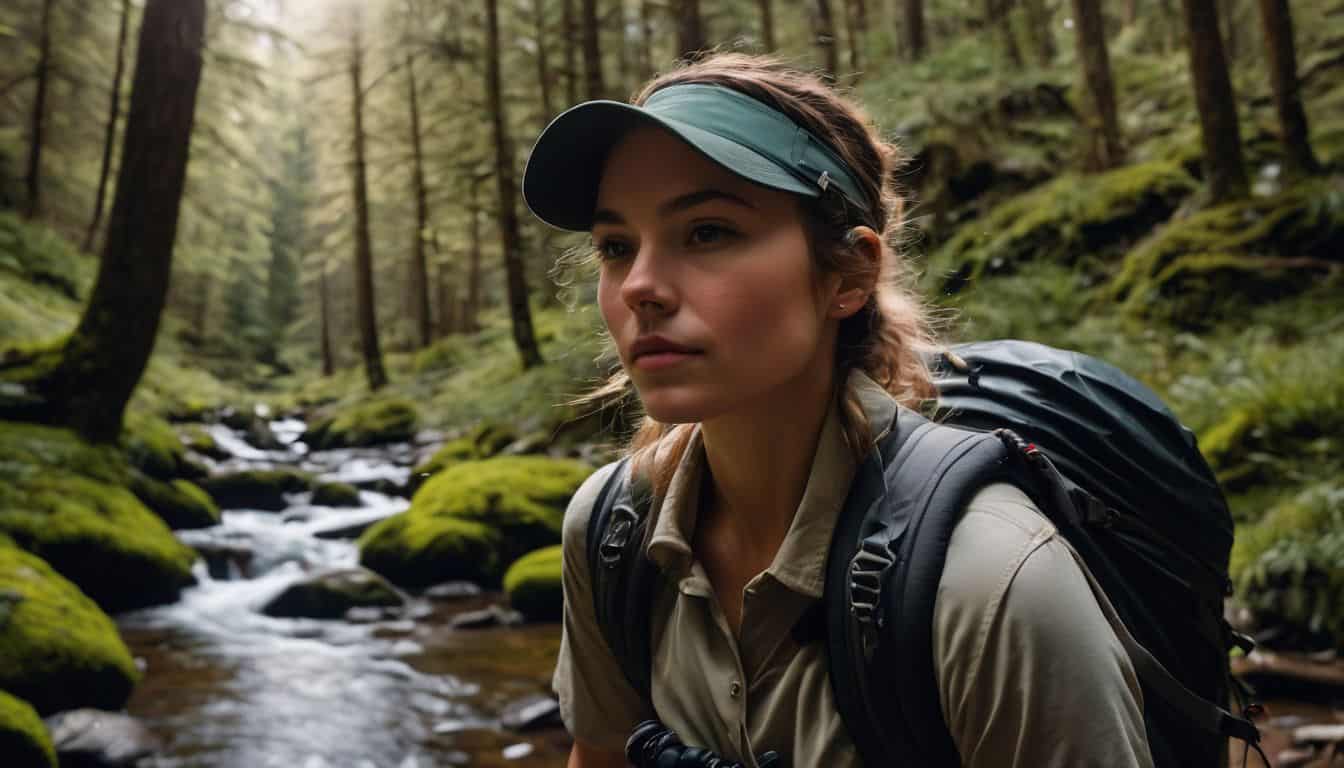
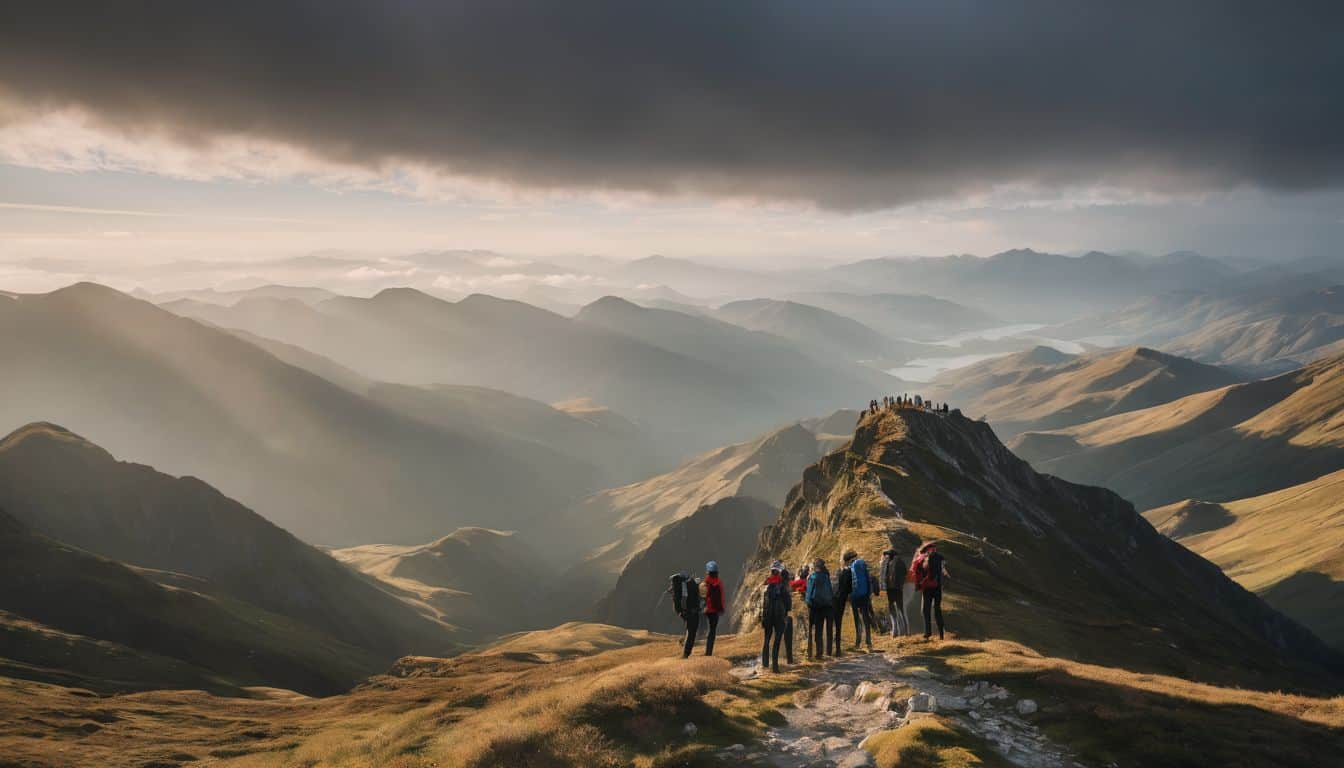
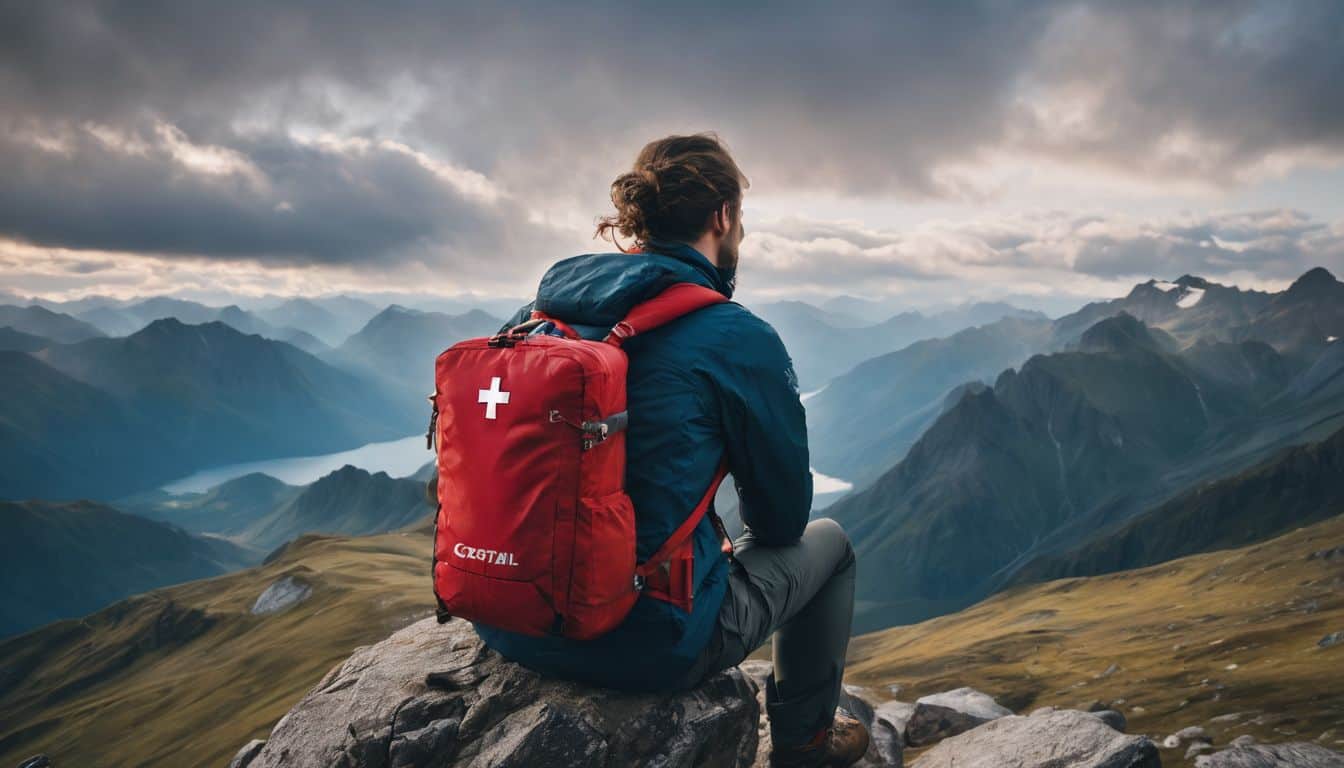
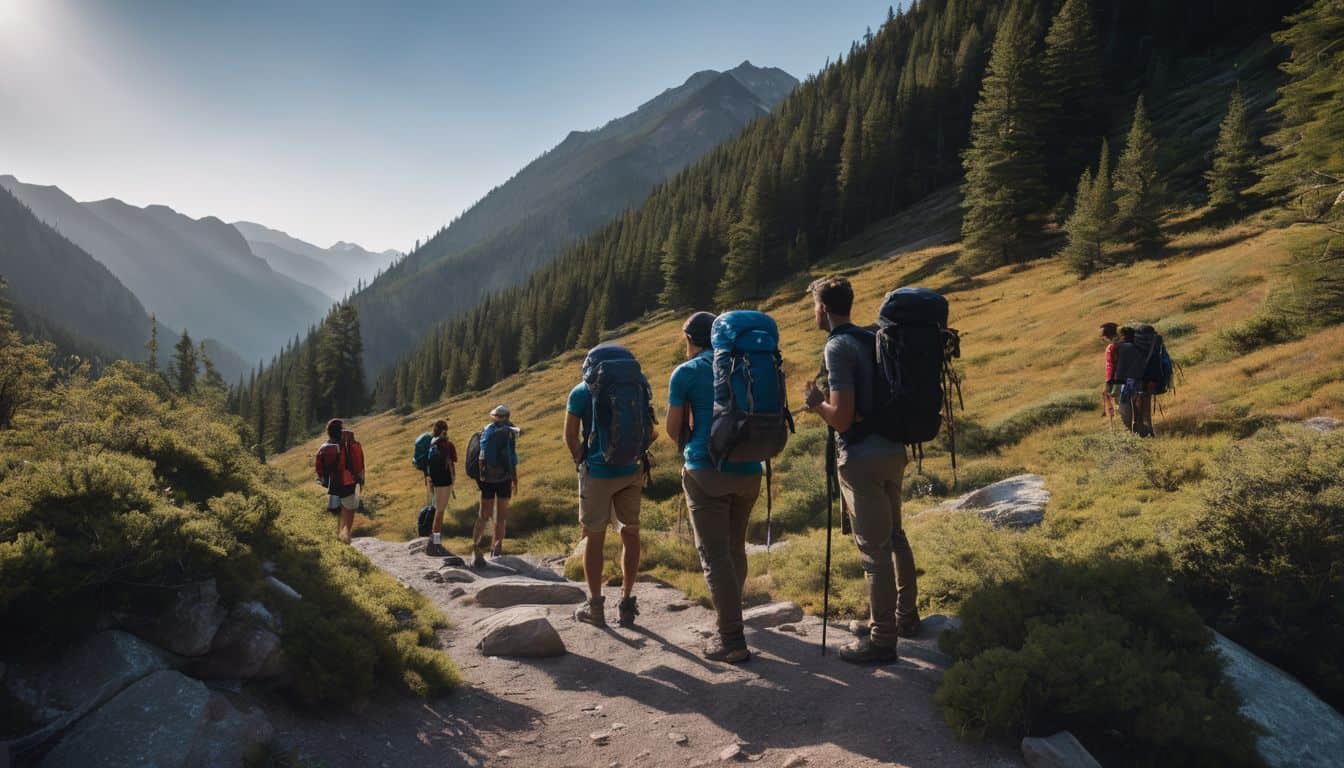
Leave a Reply